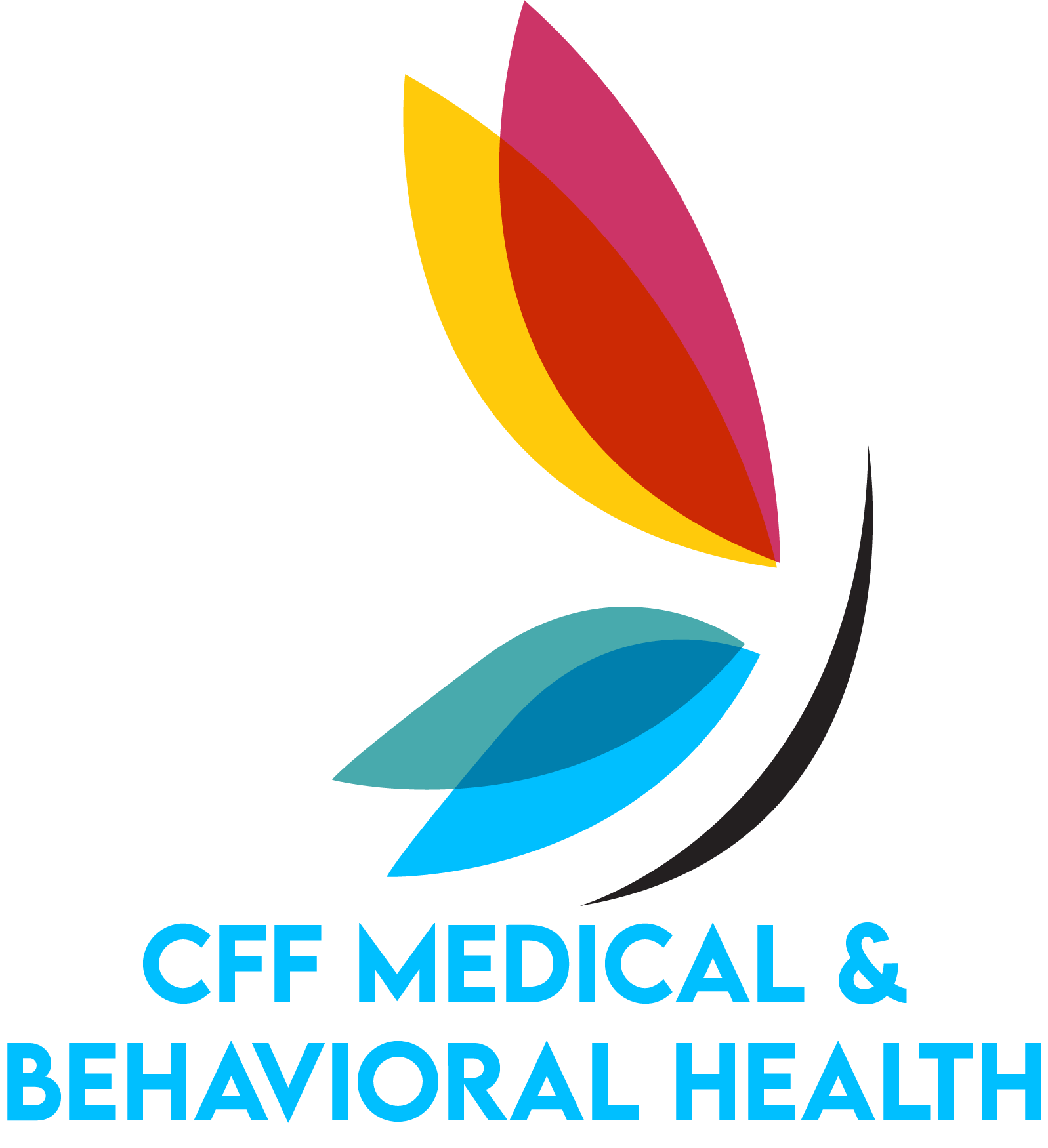Free Crisis Hotline
1-800-273-TALK (1-800-273-8255)
PLEASE RETURN TO THE EMERGENCY DEPARTMENT IF:
- You develop new or worsening thoughts of harming yourself or others
- You have hurt yourself and need medical attention (Please call 911 if seriously hurt or if concerned about an overdose)
- You have new and/or worsening symptoms
- If you feel unsafe at any time, call 911 or go to the nearest emergency room.
PLEASE RETURN TO THE EMERGENCY DEPARTMENT IF:
IF YOU NEED HELP RIGHT AWAY, CALL 9-1-1
Mood Disorders Treatment at CFF Medical & Behavioral Health
Restore Emotional Balance and Improve Daily Functioning with Personalized Care
Mood disorders—such as depression, bipolar disorder, and persistent mood dysregulation—can affect every aspect of your life, from work and relationships to sleep, motivation, and overall well-being. These conditions are more than just “bad days” or mood swings—they are clinical conditions that deserve compassion, proper diagnosis, and targeted treatment.
At CFF Medical & Behavioral Health, we specialize in the diagnosis and treatment of mood disorders across all ages, offering evidence-based therapies, medication management, and integrated care tailored to your needs. Whether you’re experiencing episodes of depression, emotional highs and lows, or chronic irritability, we’re here to help you stabilize your mood, regain control, and feel like yourself again.
Who Is This Service For?
Our Mood Disorders Treatment Program is ideal for individuals who experience:
- Persistent sadness, hopelessness, or loss of interest in activities
- Extreme mood swings ranging from euphoria or irritability to deep depression
- Low energy, sleep disturbances, and difficulty concentrating
- Thoughts of worthlessness, guilt, or self-harm
- Frequent emotional outbursts or irritability (especially in adolescents)
- Difficulty maintaining work, relationships, or daily responsibilities due to mood instability
If you or a loved one is struggling with emotions that feel out of control or overwhelming, professional treatment can help you reclaim peace, consistency, and joy.


Common Mood Disorders We Treat
Our team provides compassionate care for a wide range of mood-related conditions, including:
Major Depressive Disorder (MDD)
✔ Characterized by persistent sadness, fatigue, and loss of interest in life
✔ Treated with therapy, medication, and lifestyle interventions
Bipolar I & II Disorder
✔ Involves manic, hypomanic, and depressive episodes
✔ Treatment includes mood stabilizers, psychotherapy, and routine support
Persistent Depressive Disorder (Dysthymia)
✔ Chronic low mood that lasts for two years or more
✔ Requires long-term therapeutic and pharmacological support
Disruptive Mood Dysregulation Disorder (DMDD)
✔ A childhood condition marked by chronic irritability and severe temper outbursts
✔ Treated with child-focused therapy and family education
Cyclothymic Disorder
✔ A milder form of bipolar disorder involving frequent mood shifts
✔ Benefits from early intervention and consistent mood monitoring
Our Approach to Mood Disorder Treatment
At CFF Medical & Behavioral Health, we believe no two people experience mood disorders in the same way. Our treatment approach is personalized, holistic, and grounded in evidence-based practices.
Comprehensive Psychiatric Evaluation
✔ In-depth one-hour assessment to understand your symptoms, mental health history, and lifestyle
✔ Rule out other conditions that may mimic mood disorders (e.g., thyroid issues, trauma, ADHD)
✔ Create a diagnosis and treatment plan tailored to your experience
Medication Management
✔ Expert psychiatric providers prescribe safe, effective medications to stabilize mood
✔ Options may include SSRIs, SNRIs, mood stabilizers, antipsychotics, or combination therapy
✔ Ongoing 30-minute follow-ups for symptom monitoring and medication adjustments
✔ Close communication—we respond to medication questions within 48 hours
Individual Therapy & Skill Building
✔ Cognitive Behavioral Therapy (CBT) to manage negative thought patterns and behaviors
✔ Dialectical Behavior Therapy (DBT) for emotional regulation and impulse control
✔ Behavioral Activation to re-engage with enjoyable and purposeful activities
Lifestyle & Holistic Interventions
✔ Support with nutrition, sleep hygiene, and exercise routines
✔ Mindfulness and meditation techniques for stress reduction
✔ Identifying and managing external triggers, such as work stress or relationship conflict
Family Involvement & Education (if desired)
✔ Psychoeducation for families to better understand mood disorders
✔ Tips for supporting a loved one without enabling unhealthy behaviors
✔ Optional family therapy sessions to improve communication and support networks
How Treatment for Mood Disorders Can Improve Your Life
✔ Stabilize your mood and emotional responses
✔ Enhance focus, productivity, and cognitive clarity
✔ Rebuild relationships and reduce interpersonal conflict
✔ Develop practical skills to manage future mood changes
✔ Experience more joy, motivation, and emotional freedom
✔ Regain confidence in your ability to function and thrive

Why Choose CFF Medical & Behavioral Health for Mood Disorder Care?
✔ Dual Board-Certified Providers with 20+ years of experience
✔ Open 7 Days a Week, with evening and weekend availability
✔ Inclusive, compassionate care for all ages, backgrounds, and gender identities
✔ Emphasis on collaboration and education, not just symptom suppression
✔ Personalized treatment for mild, moderate, and severe mood disorders


